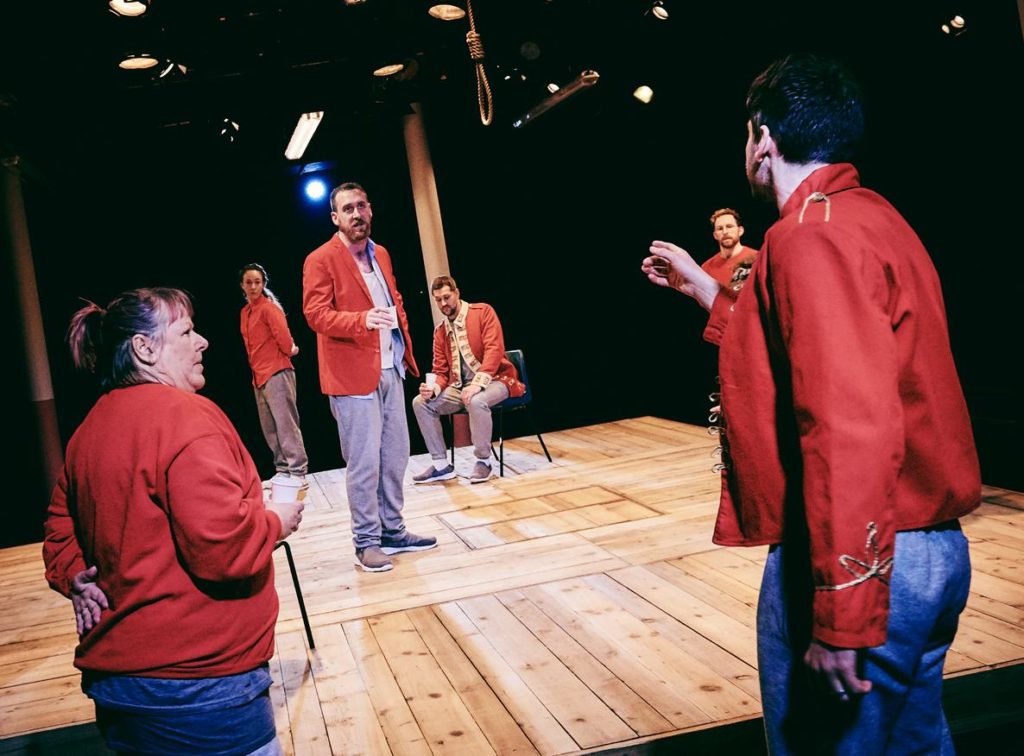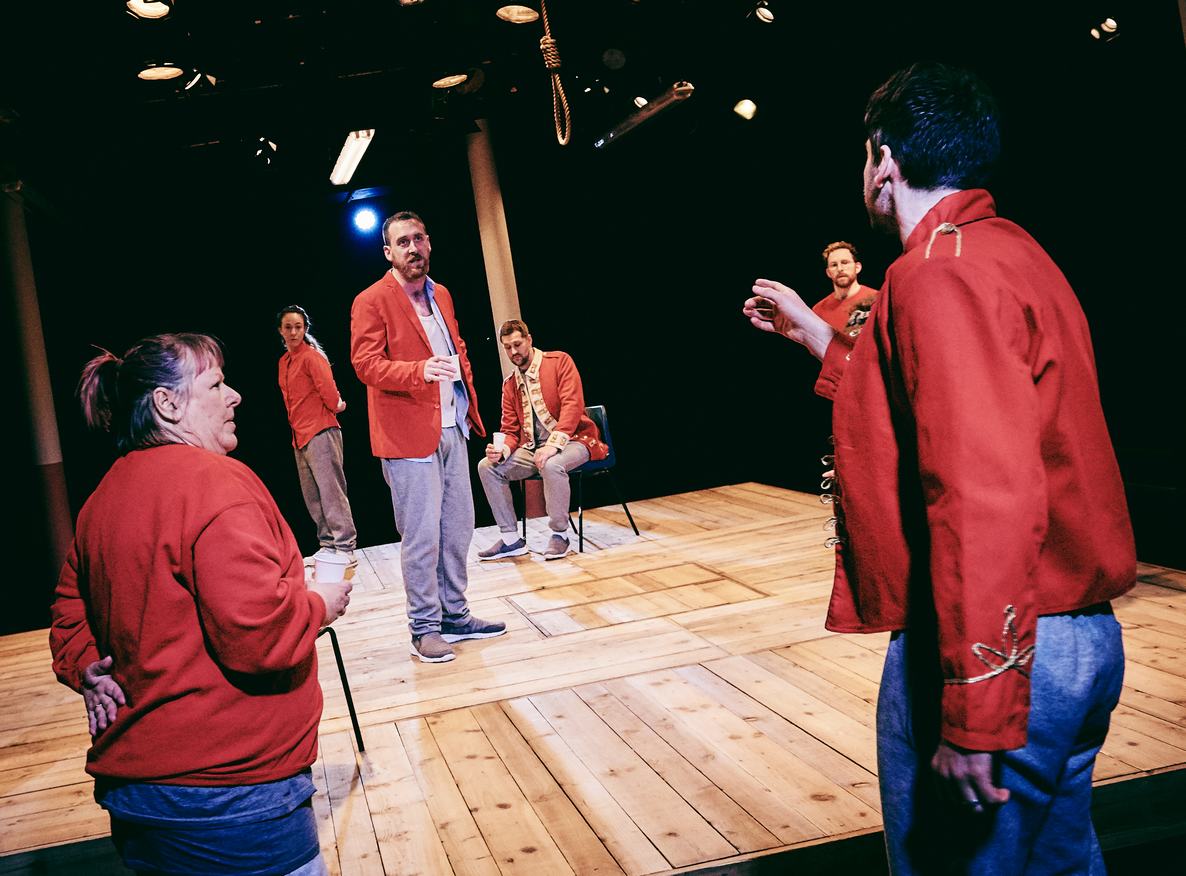
The ‘good’ of our country has perhaps never been so much debated as under its present Brexit cloud and whilst we should guard against drawing fanciful parallels it is nonetheless striking how the present split in our nation is mirrored in the play’s face-off between what we might reasonably call the, ‘hang ‘em, flog ‘em, lock ‘em up’, brigade, characterised by Major Robbie Ross (Dan Wheeler) and the more humanitarian approach of a benign dictator in the form of Captain Arthur Phillip (Luca Thompson), a man nonetheless circumscribed in his actions by the Georgian legal code, the tentacles of which stretch around the globe to the fledgling convict community in 18th century New South Wales.
The action of Timberlake Wertenbaker’s play (based on actual events in the history of the transportation of convicts to Australia) revolves around the staging of a play, The Recruiting Officer by George Farquhar, with convicts as the actors. As well as the main theme it manages to pull in; a love story, matters sexual, the power of language, an imminent hanging, multiple floggings, the place of law in society and it’s relationship to morality with the acknowledgement that the two are not necessarily coterminous, and a battle for the heart of a fledgling nation.
Captain Phillip, like Robinson Crusoe, a man with the benefit of (European) civilization believes one can plant the seeds of culture in the most unpromising soil and watch it bear fruit. These of course, whilst being the dreams and delusions of imperialism and, in a different way, totalitarianism, are central concerns to those who champion the place of the arts in a society obsessed with the measurability of results.
Anna Girvan’s Brechtian approach of having the actors sit around the edge of the in-the-round acting area – a simple wooden platform – watching the scenes they are not actually in themselves, allows her to keep the action flowing with a decent pace. The play was written with the idea that the actors would play multiple roles, which, given the cross-casting of this production can present a challenge to actors and audience alike. Despite the fact that I was concentrating (independently of the author’s rebuke) it was not always immediately clear which of the array of characters was speaking at a given moment although this was more a challenge of costume rather than characterization, which the company generally managed well. A good example in this regard is Packsie Vernon who played three parts with clarity and subtlety, contemplatively flexing her toes as Mary Brennan I noticed, whilst rehearsing her lines for the play. From such details are good performances made.
There was an unfortunate tendency throughout the company to misunderstand the physical dynamics of power and authority. The officer/ruling classes tended to have a kind of jerky swagger about them contrary to their real life counterparts who invariably display a stillness that comes of a sense of entitlement.
Whatever may be the transformative effect of theatre the play’s final message seems to be that the sine qua non of any civilization worth the name is a quest for the truth with the attendant notion that good people make good laws.
Ms Girvan has created a piece of epic, or to use Brecht’s term, dialectical theatre which, sadly, is unlikely to lose its relevance any time soon. ★★★☆☆ Graham Wyles 24th April 2019


